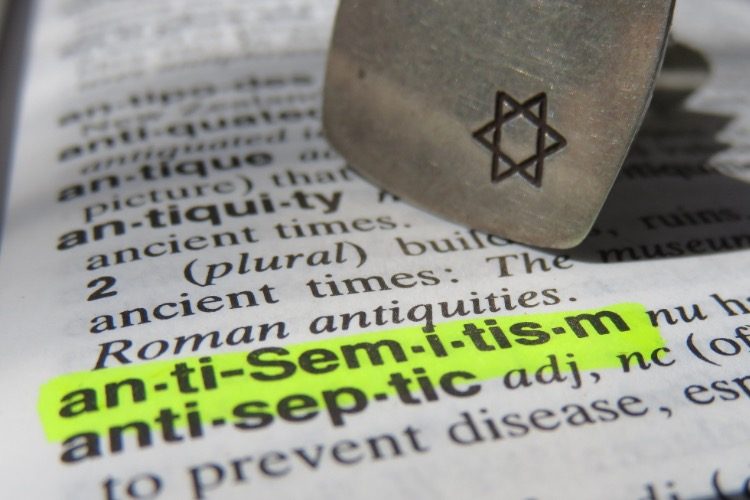
When the film The Passion of the Christ hit theaters in 2004, critics began wringing their hands (and the Truth) and claimed the work would stoke anti-semitism. In reality, an analysis found that viewers emerged from the movie not more, but less, anti-semitic (and one man was inspired to repent and confess to murder). This really isn’t surprising, either, as it reflects related research: A study of 45,000 youths in Germany, released in 2010, found that increasing religiosity made Christian youths less violent.
Note: This means less violent than today’s secular norm.
Then there’s the secular extreme. This brings us to the recently intensifying left-wing, college-campus hatred of (and violence against) Jews, which, being overt and odious, has shocked and befuddled many. What explains this phenomenon?
Commentator Monica Showalter mentions that while part of it may be “basic jealousy,” there’s another factor, one addressed recently by University of Pennsylvania political-science professor John Dilulio. As he wrote at City Journal:
As the old saying goes, an explanation is the place where the mind comes to rest. But if we dig deeper, might we find an inverse relationship between religious commitments and anti-Semitism, such that a decline in religion begets a rise in anti-Semitism?
A suggestive study released last year might lead one to consider that possibility. In “From the Death of God to the Rise of Hitler,” published in the Journal of Economic Literature, economists Sasha O. Becker and Hans-Joachim Voth subjected diverse datasets to cutting-edge statistical analyses to test whether Germans who lived in robustly Christian communities were more or less likely than otherwise comparable Germans to join the Nazi Party.
As Becker and Voth interpreted them, the results favored what they styled the “Shallow Christianity” theory: in places in which “the Christian Church only had shallow roots, the Nazis received higher electoral support and saw more party entry.” The “results,” they concluded, “suggest that Nazi support and Hitler’s startling appeal received an important boost from the spiritual ‘emptiness’ of large parts of the German population.”
Dilulio is, as is said, on to something. Yet perhaps missed is the deeper reality.
Before proceeding, I’ll point out that at issue here are not just political differences. One can agree or disagree with Israel’s Gaza policy — can believe it’s heavenly or horrid — without descending into hatred (a sin) of Jewish people. But that’s not happening with the Left.
Now, Dilulio is correct about dying Christianity having enabled rising Nazism; in fact, as I illustrated in the 2008 essay “Hitler and Christianity,” the National Socialists themselves, like all socialists, were un- and anti-Christian.
(Another point: Dilulio claims that his thesis may seem strange given that even his Catholic Church has a history of anti-Semitism. Yet Rabbi David Dalin disputes this idea in his book The Myth of Hitler’s Pope, pointing out that the Church has been a friend to the Jews since at least the 13th century.)
Yet here’s the issue: People have a tendency to view problems in isolation, thus missing the big picture. So we may hear of “road rage” or “air rage” or “oppositional defiant disorder,” forgetting that these problems and other attitudinal ones all reflect a lack of virtue. Likewise, is the issue here that the secular “Left” merely “hates Jews”?
For perspective, a certain fact must be considered: Man’s default is not to be peaceful and angelic unless and until some destructive influence disrupts his noble-savage state of being. Quite the opposite.
Any supra-comic-book grasp of history reveals that man never needed an elaborate excuse to cannibalize, steal, sacrifice (others), murder, maim, headhunt, and enslave — not anymore than chimps need an excuse to attack and kill members of another troop. Give man’s flesh, his animal nature, free rein — unfettered by divine laws and untempered by God’s grace — and he’ll become animalistic.
Now, Christianity’s decline wasn’t just associated, 90 years ago, with Nazism’s embrace, but is also linked to leftism’s adoption today. (E.g., church-attendance habits constitute one of the best predictors of voting habits.) Consequently, what we see with the Left is ungodly behavior across the board.
Regarding hatred, nominally Jewish billionaires such as Robert Kraft, Henry Swieca, and Bill Ackman are now shocked and dismayed that their alma maters are facilitating anti-semitic protests (which they themselves have often indirectly enabled by lavishly funding the universities). Of course, people generally only sit up and take notice when their own ox is being gored, but, still, there’s the urge to ask:
Where have you been?
As I pointed out in 2020’s “Violence, Inc.: A Leftist Enterprise,” leftists are defined by hatred. (Thus do they continually accuse others of being “haters” — it’s projection.) They have for decades spewed venom on, mocked, and sometimes attacked conservatives, Christians and, more recently, MAGA supporters.
To provide just a few examples, we didn’t see in the ’80s a menorah immersed in urine, titled “P— Menorah),” and called “art”; we did see a crucifix immersed in urine titled “P— Christ.” When ex-CNN host Reza Aslan said that a certain group is a “scourge” that “must be eradicated from society,” he wasn’t referencing Jews, but Trump supporters. And the educational institution the Biden administration is currently targeting for destruction is not a yeshiva, but Christian Grand Canyon University.
While much more could be said, consider just one more factor: Hating the sin but not the sinner is a Christian imperative. So, not surprisingly, leftists have exhibited that very human quality of conflating sin and sinner. Thus do they assume that Christians who hate homosexual behavior must hate homosexuals. Thus do they hate Jews along with the actions of the world’s Jewish state.
And thus do they tend to hate all people who contradict their agenda — which is a lot of people.
When God’s love is absent, the Devil’s hate is often all that is left.


